Award Books by Genre: Pulitzer Prize Winner/Nominee
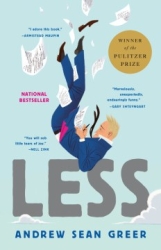
As I work my way through the Pulitzer Prize-winning novels, I'm finding the modern ones hold up a lot better under scrutiny. There's usually some eye-opening element from a marginalized group, which is partly why these are important novels to recognize. For its time, I'm sure Less came off edgier than today because of the wider acceptance of LGBTQ+ characters. Still, the writing in this book is deserving of its Pulitzer status not because of the main character's sexuality, but rather by the humor and humanity present in these pages.
The odd thing is that I don't think a book like this would work quite as well with a straight protagonist because they basically fall into all those same "woe is me" tropes that loser white guy main characters exhibit in a lot of literature. Yes, Arthur Less can't commit to a relationship. Yes, he's avoiding accomplishing the things he's good at because he's having a midlife crisis. That he's gay actually makes things more relatable. It doesn't matter which gender men choose to love, they all have these problems—for better or worse.
I think the most surprising element of Less is its humor. I still recall some of the best written punchlines almost 5 months later (Volcano? It's closed). That the author uses the humor to lighten the depressing side of this book's plot is a godsend. Life is full of missed opportunities and burned bridges, so framing these situations with the soft blanket of humor helps make them more heartfelt. Even amongst all the exotic locations, the one common denominator is the individual who is there, trying to run from themselves. It doesn't get any deeper than that.
A humorous and heartfelt look at the midlife crisis of all men, I give Less 4.5 stars out of 5.
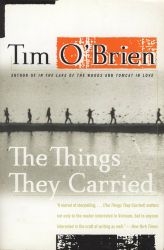
The Things They Carried was a book I had to read for school, but one I started to enjoy. I love the way the author uses very descriptive language to portray every setting and character, making you feel like you are right there with them. The book does a greta job at addressing various moral dilemmas in society and how the "societal rules" change during times of peace and war. Overall this book was not my preferred genre, however the writing is superb and it is a great book to challenge thinking. While it may be hard to relate to characters at times, it definitely makes you stop and think about yourself and where you are.
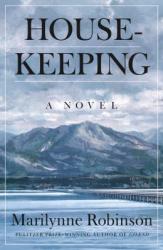
As I'm working my way through Pulitzer winners and finalists, I approached Housekeeping with skepticism. I knew nothing about this book other than its inclusion on these lists for "high literature." Having now read it, this book completely underwhelmed me. I'm going to include this with other books of literature like One Hundred Years of Solitude or Ulysses , both of which I found extremely boring and lacking of any kind of plot that I could latch onto. At least this was short and had some occasionally flowery prose.
Even now, thinking back on what I read, I can't pick out anything significant that happened in this book. That I'm having trouble remembering what it was about should indicate how little impact it had on me. I vaguely remember there being something about an aunt who was a drifter and the bigger metaphor of "home is where the heart is." And, of course, extrapolating to the title, I can estimate that we must keep our hearts clean so we can live our best lives. Of course, this is all spitballing as even the synopses I've read to remind me of the plot don't help much either.
If Housekeeping left me with anything, it was a feeling. Like an ephemeral sense that the words that were used were meant as fluid poetry in narrative form. Would I recommend this book on its feeling alone? Probably not. But that's fine. Just because a book has many accolades and lots of people like it doesn't mean that I also have to enjoy it. Perhaps I'm more of a shallow reader for not "getting" these books of high literature, but I also know life is too short to spend time on unsatisfying books.
The essence of a deep poetic treatise on life but in an extremely boring package, I give Housekeeping 2.0 stars out of 5.
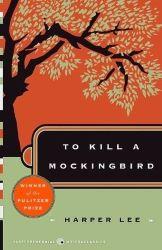
Harper Lee wrote the award-winning novel, To Kill a Mockingbird, in the 1960s. This was a time when her home state of Alabama was embroiled in many civil rights activities to counteract the inconceivable practice of segregation. It is so fascinating that Lee placed the setting of her book in the 1930s during The Great Depression. The story is narrated by a young girl named Scout Finch who lives with her father Atticus, her brother Jem, and their black housekeeper named Calpurnia. She uses these characters and many others to weave together a coming-of-age story and a story of racism. Scout witnesses the biased treatment of African- Americans when her father defends a black man, Tom Robinson, who is accused of beating and raping a white woman. Atticus teaches Scout and Jem so many lessons about prejudice, compassion, and tolerance. My favorite quote in the book is: “You never really understand a person until you consider things from his point of view…until you climb into his skin and walk around in it.” I highly recommend this book as its lessons will never be outdated.
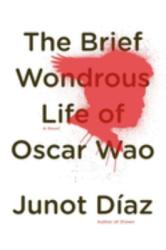
I picked up this book because it was on a list of Pulitzer Prize winners and I figured that was a good enough metric to give it a shot. I was not disappointed. Told from a few different perspectives, The Brief Wondrous Life of Oscar Wao is a fantastic look into the lives of Dominican Americans. I could tell the author was writing from deeply personal experiences, and the result was riveting.
There's a lot I don't know about the Dominican culture, but I felt this book was an eye-opening look into their history. Told as personal anecdotes from the characters, it was wild to see the effects of living under a dictator. However, even once someone escaped from that oppression, life in America wasn't an easy walk in the park either. The effects of racism might not be as bad as having your daughters sold to a dictator, but they still aren't pretty. Using these point-of-view stories to convey all this made the experience of reading this book feel more authentic.
This audiobook also included a short story by the same author, "Drown." While this story wasn't quite up to the quality of The Brief Wondrous Life of Oscar Wao, a lot of the author's style was still present. Of course, this style felt a little rougher than his Pulitzer Prize-winning work, but it was interesting to see how it evolved between the two. Ultimately, the Pulitzer Prize can be a somewhat subjective metric for whether a book is good or not. Here, it's spot-on and I think people should read it because of its award-winning status.
An excellent and authentic examination of the life of a Dominican American, I give The Brief Wondrous Life of Oscar Wao 4.0 stars out of 5.

"To Kill a Mockingbird" by Harper Lee is a classic exploration of racial injustice and moral growth in Southern United States. The novel's strengths lie in its powerful narrative, addressing societal prejudices through the trial of Tom Robinson. While the coming-of-age story of Scout and Jem Finch provides a strong examination of morality, occasional pacing issues and a less engaging narrative may make it a 3/5 for some readers. Despite this, the novel's enduring relevance and impact on discussions of justice make it a worthwhile read. I found the language in the book somewhat challenging, making it less accessible for me. It occasionally hindered my overall reading experience, but was a treasure of its own!
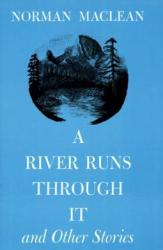
I love how books can give insight into things we might not otherwise know. How, when someone "writes what they know" in an autobiographical sense, the reader gets to experience that slice of their life. I'm not interested in fishing—in any of its styles. And yet, A River Runs Through It gave such a clear picture of what it's like to go fly-fishing that I felt like I had actually experienced it. I'm still not interested in trying it in real life, but now I feel like I get it.
Of course, A River Runs Through It isn't entirely about fly-fishing. There are other universal themes, like fatherhood, brotherhood, sonship, and unity with nature. I can also appreciate that there is a Christian tilt to the main character without being judgmental of the choices his family has made. This unconditional love speaks to what Christianity is all about. That's not to say that the actions of his family aren't frustrating to read about, it's just that going fly-fishing is something that washes away any bad blood.
While it's a quick read, A River Runs Through It doesn't need much to convey the author's genuine attitude toward life. Because it's not about the details of actually fly-fishing that reveal how knowledgeable Maclean is at the sport. There weren't any facades that tried to paint the main character as a saint. All the characters had flaws, just some were more obvious than others. An accurate examination of an individual's life says more about what they've accepted than what they wish they'd wanted to be. And perhaps being in the "natural environment" where they're the most comfortable is the whole point of this book.
A heartfelt love letter to family and fly-fishing, I give A River Runs Through It 4.0 stars out of 5.
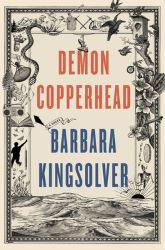
The sole way to describe Demon Copperhead by Barbra Kingsolver is a long, dark coming-of-age narrative. Demon Copperhead, born and raised in the southern Appalachian mountains by a single drug-addicted teenage mother, is seemingly designed for failure the moment he was born. Throughout his childhood, Demon confronts an abusive stepfather, an addicted mother, exploitive fosters, and selfish friends. As he faces a life of mistrust, inadequacy, and poverty, Demon relies on his wits to survive. While the book is lengthy, there is never a dull moment or lull in the plot, and the characters within the narrative are dynamic, adding depth to the story. The writing style effectively lures the reader into the constructed world of Lee County.

Interpreter of Maladies by Jhumpa Lahiri is a collection of nine short stories about cultural differences. In each of the nine stories, the beautifully composed characters are taken through inspirational journeys, whether conflicts about romance, communication, cultural differences between India and America, or separation. Not all endings are happy, but a lesson can be learned from each story. It is a must-read book that challenges cultural differences and will transform a mindful reader's perspective. Overall, I would rate the book five out of five stars.
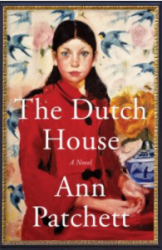
I enjoyed this audiobook quite a bit during long commutes - Tom Hanks' soothing voice envelops you as he tells the story of Danny & Maeve as they grow and experience many of life's common hardships, and the many lines that can be traced back to The Dutch House. I am partial to books with observable character development, and I felt that was seen for a few characters within the novel. I would recommend this book.
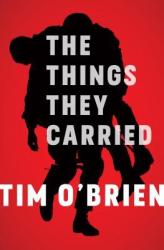
The Things They Carried by Tim O'Brian is a pretty good book about the Vietnam war. The book jumps around a lot with the characters in the war, after the war, and before the war. While it could be a little confusing at times, it was still an entertaining book. If you like reading books about Vietnam, but that also go in depth on the character, this would be a great book to read. Overall, I'd recommend this book!

The Things They Carried by Tim O’Brien horrifically recalls Tim’s time during war, in what he calls “A true war story that isn't real”. This book recreates the experiences O’Brien went through during wartime, and is written in a very grotesque manner. The story jumps around from timeline to timeline, in a way that a lot of the time you aren't sure what perspective you’re reading from. While written very well, O’Brien has a habit of making every character seem like a horrific person and puts himself on kind of a metaphorical pedestal, in what seems to be an attempt to reconcile with the guilt he faced from the atrocities committed by him and his platoon. I would definitely recommend this book to others, despite its faults, but I believe the most important thing to know going into this book is that the events described are so grotesque they seem like made up fantasies or true stories that have been modified to seem worse than they actually are, which is part of O’Briens intention of telling the story the way he remembers it happening, not the way that it actually happened.
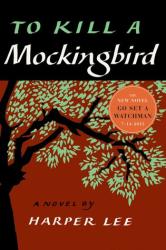
This book is in the top 10 definitely! To Kill A Mockingbird is a story of prejudice Jim Crowe South and the constant fight for justice. Jem is the older brother of 'Scout', a tomboy constantly trying to fit in with the big kids. In the story, they attempt to fight for a black mans rights in attempt to prove his innocence in a rape trial. I would highly recommend this book to middle and high schoolers. This book has a deep meaning of the powerful message that kids can have and their outlook in bad situations.

To Kill a Mockingbird by Harper Lee is a novel about Jean Louise Finch (Scout), living through her father Atticus' controversial decision to defend a black man in court. Along with experiencing the tribulations of racism in her home town of Maycomb County, Scout, her brother Jem, and her friend Dill explore the curiosities of the town and investigate the mysterious Boo Radley. The plot gave me excitement to continuing reading, and the joining of the two plots at the end created a perfect ending to the story. I thought that the book was really good due to the knowledge that was gained about the history during the Great Depression and the progression throughout the book that helped develop the main character. This was a school required book, but I would definitely recommend it to readers in high school and above.
Reviewer Grade: 9
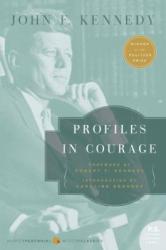
This book contained a lot of wisdom from a president’s point of view and was a very useful insight into his perspective. I appreciated the many different stories about many different historical figures and their trials, however, i did notice a strong bias against others and their perspectives. If i was to recommend this book to someone else, I would advise them to be careful about taking every word he says to heart, as he doesn’t phrase things from a neutral perspective. Overall i enjoyed the book, but it should be read by people looking for insight, not as an entertaining or exciting book. Though it may not have been thrilling or suspenseful, overall it was really good.

I loved this book. Celie, Shug, Nettie, and Sofia were such strong women, facing a hard life and rising above it. Celie in particular has cemented herself in my mind as one of the great female protagonists in all of literature. I love how she didn't let her circumstances squash her spirit. I learned so much about a wide variety of things in this book. I learned a lot about Africa in the 30s leading up to WWII and the desecration of the tribal land by the English. I learned about the treatment of African American women by African American men and about their resilience and bravery. I loved the ending. Perfect.
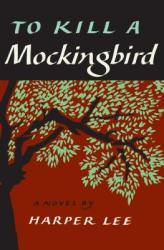
To Kill a Mockingbird is a novel entirely worthy of its praise. The humor, subtlety of the impact left by the narration from a young girl's perspective, and incredibly real themes all fit together perfectly. The story is a straightforward read and combined with the intricate storytelling based on the author's own life, the topics surrounding race and justice feel meaningful. The story follows Scout Finch, a young girl, and her friends Jem and Dill while depicting their views on life in the South during the Depression. The juxtaposition of childish natures and mature outlooks on violence, prejudice, and societal struggles brought about by the narration stand out. Each instance of injustice and depiction of the imperfections of humanity in a struggling society tie the development of the characters and rise to the climax together well. Overall, I would recommend this book to anyone, as it is a fantastic, and rather light read.
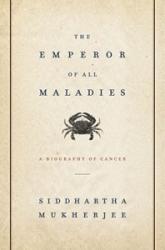
The Emperor of all Maladies is an informative and gripping history of cancer. Starting with the first recorded cases in ancient times and the remedies used by ancient doctors and progressing to the medical breakthroughs of chemotherapy and radiation, the book provides a wealth of information in a riveting tale. Dr. Siddhartha Mukherjee tells the stories of cancer’s most prominent adversaries like Dr. Sidney Farber as they work to develop life-saving treatments and procedures. The book is quite lengthy but kept me engaged throughout while teaching me about cancer history and treatment in a form that feels more like a novel than a textbook. If you want to learn more about one of the most prolific diseases in human history while viewing history through the lens of cancer researchers, The Emperor of all Maladies is perfect for you!
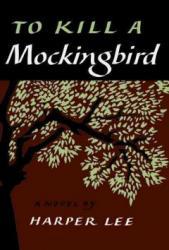
"To Kill a Mockingbird" by Harper Lee creates a creative look on segregation in life in the 1930's. As the story goes along, Scout and her brother Jem experience many changes throughout the summer of 1935. Their father, Atticus Finch, defends a black man after the man was accused of an unsolved crime. The event creates much thought and debate on the subject of segregation. The book has many great turns and the potential of characters was used to a full extent. I highly recommend the read for it will give readers an excellent idea of how life was those many years ago.
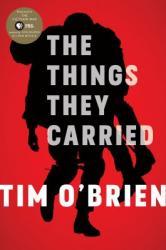
The Things They Carried is a memoir by Tim O'Brien about his experiences as an American soldier fighting in the Vietnam War. O'Brien was chosen to be drafted in 1968. This incident was extremely stressful for O'Brien who had taken a stand against the war, yet didn't want to disappoint his community. He pondered running away to Canada, but eventually decided to fight. The Things They Carried is a series of stories that are so well written. The work is a bit hard to understand just because O'Brien wrote it in a way that is not completely nonfiction. In the book, he explains this concept more in depth. Overall, I thought this book was a very well written, interesting, and educational story regarding the horrors of war from O'Brien's perspective in Vietnam.
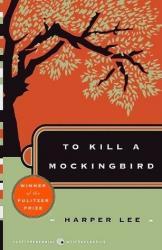
"To Kill a Mockingbird" is an essential piece of literature. It tells a story that highlights the darkness of America's past, through the innocent eyes of a young girl. With this type of narrator, who almost only understands pure truth, joy, and rage, it is possible for readers to feel what she feels, and be brought into her small world (Alabama during the Great Depression) with simple, yet beautiful writing. The story itself is touching, and focuses on themes of family, racism, and solidarity. Aside from its essentiality in explaining America's history, it also can be read as a coming of age story, where the characters begin to see the harsh reality of the world in which they grew up, and in which they created lasting memories and relationships. It will make you laugh, cry, and feel.
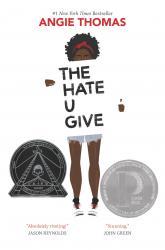
The Hate U Give is about a 16 year old black girl raised in a fictional poor community of garden height who goes to a private school on the other side of town. The main problem in this book is when Starr the main character’s best friend Khalid, who gets pulled over from leaving a party and sadly gets shot by a white police officer. The book contains some sensitive topic about black oppression and police brutality. Although it does talk about cop brutality it isn’t a police- bashing book. The book's intention is to spread awareness on the deep conflict with in poor black communities in our nation. I highly recommend this book 10 out of 10.
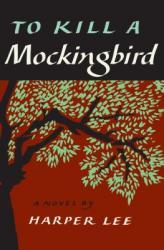
To Kill a Mocking Bird is about the racism and false accusations towards African Americans in the 1930s. The book is for a more mature reader because of the language used and some of the ideas that are introduced. I would highly recommend this book to anyone interested in learning more about the racial prejudice in the south in a book with a good plot. The characters are also relatable to a reader which I really enjoyed. Overall I think Lee did an amazing job writing this book.
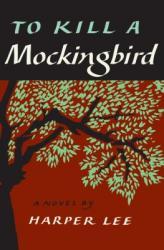
I read this book my freshman year of high school and there are some really interesting parts to this book involving suspense, murder and mystery but the book can be a little confusing if you don’t really pay attention. This book is very well written as it’s showed us how it was during this time period, giving us a whole perspective on how the characters were feeling at this point of time. The characters in this book do have to deal with a couple of problem which some don’t really go their way for example the whole situation with Tom Robinson. Although this book is well written it does carry some inappropriate language include a very discriminatory word, but you do have to keep in mind that this book was written in a very controversial time where saying the n-word wasn’t really frowned upon (not say that is was right). I wouldn’t recommend this book for children because it’s does deal with murder and rape but other than that it is a very good book.
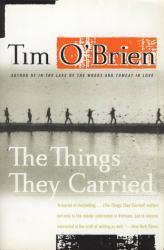
The Things They Carried follows through the perspective of a soldier within the 23rd Infantry Division. Enlisted during the Vietnam War, the book covers over the soldier's, as well as the platoons experiences throughout. The Things They Carried is a collection of stories that correlate to one another, bringing an ultimate immersion to those that are interested of any war, or historical context.
The Things They Carried is a book that has a deeper insight within the emotional, mental, and physical state of the soldiers that went through the Vietnam War. Having a darker and more serious tone than other novels, it is one that stands out and deserves recognition.
Reviewer Grade: 11
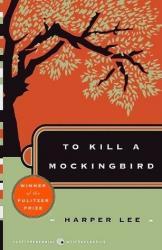
“It’s a sin to kill a mockingbird”. Harper Lee writes a beautiful and provocative narrative in To Kill a Mockingbird in order to create a conversation about relevant themes that affect our world. The story follows Scout and her brother Jem as their father, Atticus, defends an African American man named Tom Robinson in court for raping a young white woman.
Meanwhile, the children meet a new boy named Dill, and are curious about their neighbor, “Boo” Radley. The book deals with intense themes such as racial injustice, class, and growing up.
When I first read this book in 9th grade, I didn’t care too much for it. I enjoyed it, but I didn’t think it was something that I could read again.
But I was wrong. While re-reading this book, I discovered why it is a classic. The book deals with serious issues while still remaining eloquent and poetic. I adored Scout’s character and her development seen through her interactions with Boo Radley. I thoroughly enjoyed Harper’s writing style and her ability to create distinct and well rounded personalities for each of her characters. I believe that this book should be read both in schools and outside of them because of its powerful and controversial narrative.
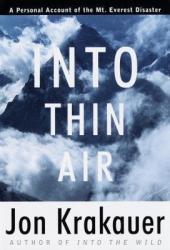
Into Thin Air is a narrative story of the author and climber, Jon Krakauer.
He establishes that ever since he was a kid, climbing Mt. Everest was his dream. He later accomplishes his ambition down the line, but with more consequences than anything rewarding.
Into Thin Air uses a consistent tone of language to identify whether the situation represents relief or tension. This gathers more intensity for those who are interested in thrillers and adventurous stories. The narrative offers a variety of twists and turns throughout the plot in order to continue the use of curiosity and unpredictability of the end. The story is very interesting, and builds upon every single detail, from the start until the end of the book.
Reviewer Grade: 11
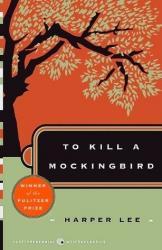
This is a story that beautifully represents society in a way few novels can. Set in Maycomb, Alabama in the early 1930's, it is told from the perspective of a 6-year-old girl, Scout, as she grows, plays, and gets into trouble with her older brother, Jem, and comedic friend, Dill. Scout's wise father, Atticus, must defend an innocent black man accused of rape; along the way Scout meets people and learns things that impact her life. Meanwhile, Scout, Jem, and Dill, are determined to learn more about their mysterious neighbor and the violent rumors that surround him--sometimes getting themselves into humorous situations--and learn something surprising. The book is spectacularly and wisely written, with characters readers will connect with, and themes that are important in all readers' lives: courage, empathy, and the power of standing up for what you believe in. Scout's sense of humor and insightful observations will make readers think and keep turning the pages for more.
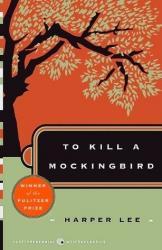
To Kill a Mockingbird is truly a masterpiece of American literature.
Along the lines of Tom Sawyer and Huckleberry Finn, Harper Lee presents us with a coming of age story set in 1930s Alabama. Scout and Jem Finch explore their hometown, get into trouble, wonder about the mystery of Boo Radley, and are faced with a great challenge when their father must prove a man to be innocent. Atticus Finch, Scout and Jem's father, is a wholehearted, unprejudiced role model who always stands up for what is right and who anyone can learn a lesson from. Overall, I understand why many schools require their students to read this book as it is wonderful literature for all generations.
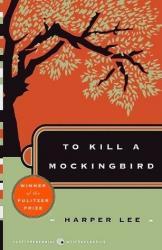
To Kill a Mockingbird, by Harper Lee, is a fantastic novel that examines the racism present in the South during the Great Depression. The book includes several remarkable instances of justice being served to the widespread prejudice present, which captures the reader. All of the character are well developed and serve well in their roles, especially the main protagonist. The entire setting is also intriguing and forms a solid foundation for the plot. Overall, I would recommend this book to anyone as it is a fascinating tale about Southern life.